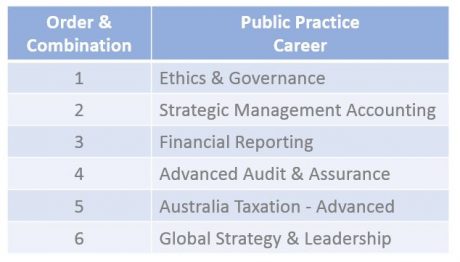
A general account ledger (GAL), serves as the basis for your budgeting calculations and accounts receivable turning. This report shows you the current bank balance, as well as the amount spent on printing and professional service. You might have increased rates for your accountant. Or perhaps an attorney handled a dispute with employees. The past year's activity can be viewed as well. It will give insight into the performance and profitability of your business.
Chart of accounts
The chart of accounts is the foundation of financial record keeping. It contains all balances for business accounts. This includes revenue, expenses, equity, and equity. Although the format can be modified to fit your company's requirements, it should still adhere to established financial reporting standards. Chart of accounts should be able to reflect actual business transactions. It should not reflect business's goals. This article will address most questions you might have about chart accounts. This article should help you to choose the right chart in order to best serve your business.

Sub-ledgers
A sub-ledger in the general account leadger is used to record inventory. These sub-ledgers list the current stock levels and cost. Wholesalers, manufacturers, and retailers keep detailed records about the quantity of each item. This quantitative record helps to verify that a company always has sufficient stock. It also allows for accounting for variations in cost. These sub-ledgers also include information about depreciation and purchase returns.
General ledger accounts
The most used accounting system, the general account leger, is widely used. By recording transactions under separate heads, it facilitates bank reconciliation. It is also useful in accounting ratio analysis. This helps businesses calculate the amount of money owed creditors and debtors. This system works with a double-entry approach. A decrease in a liability will cause it to be credited. These are the most common uses of the general accounts ledger.
The purpose of a general ledger
The General Account Ledger, which is the heart of your company's recordkeeping and accounting system, is an essential component. This account is essential for financial statements. It helps you understand the state of your cash flow. Whether you are a small business or a multinational corporation, you need a general account ledger to determine how much money you are generating and how it is being spent.

General ledger characteristics
A general account leadger is a set of general accounts that includes the accounts payable, receivable, and fixed assets. These accounts are all linked and used to prepare financial statements. The general ledger offers many advantages, including the ability to accurately reflect transactions from all accounts. A general ledger has many benefits, including the ability to track information quickly and provide error correction tools. Below are some characteristics of a general ledger.
FAQ
What does an auditor do?
An auditor looks for inconsistencies between the information given in the financial statements and the actual events.
He verifies the accuracy of all figures supplied by the company.
He also verifies the validity of the company's financial statements.
How long does it take to become an accountant?
To become an accountant, one needs to pass the CPA exam. Most people who are interested in becoming accountants have studied for at least 4 years before taking the exam.
After passing the exam, one must be an associate for at most 3 years in order to become a certified public accounting (CPA) after passing it.
What is an audit?
An audit is an examination of the financial statements of a company. Auditors examine the company's books to verify everything is correct.
Auditors are looking for discrepancies among what was reported and actually occurred.
They also verify that the financial statements of the company are correct.
What is a Certified Public Accountant (CPA)?
A certified public accountant (C.P.A.) A certified public accountant (C.P.A.) is an individual with special knowledge in accounting. He/she can prepare tax returns for businesses and assist them in making sound business decisions.
He/She monitors cash flow for the company and makes sure the company runs smoothly.
How can I tell if my company has a need for an accountant?
Many companies hire accountants when they reach certain size levels. If a company has $10 million annual sales or more, it will need one.
However, not all companies need accountants. These include small firms, sole proprietorships, partnerships, and corporations.
The size of a company doesn't count. The only thing that matters is whether the company uses accounting systems.
If it does then the company requires an accountant. It doesn't if it doesn't.
What is the difference between bookkeeping and accounting?
Accounting refers to the study of financial transactions. The recording of these transactions is called bookkeeping.
The two are related but separate activities.
Accounting is primarily about numbers while bookkeeping is primarily about people.
To report on the financial health of an organization, bookkeepers must keep track of financial information.
They adjust entries in accounts receivable and accounts payable to make sure that the books balance.
Accounting professionals analyze financial statements to assess whether they conform to generally accepted accounting procedures (GAAP).
They may suggest changes to GAAP if they do not agree.
For accountants to be able to analyze the data, bookkeepers must keep track of financial transactions.
What happens to my bank statement if it is not reconciled?
You may not realize you made a mistake until the end of the month if you don't reconcile your bank statements.
At this point, you will need repeat the entire process.
Statistics
- According to the BLS, accounting and auditing professionals reported a 2020 median annual salary of $73,560, which is nearly double that of the national average earnings for all workers.1 (rasmussen.edu)
- Given that over 40% of people in this career field have earned a bachelor's degree, we're listing a bachelor's degree in accounting as step one so you can be competitive in the job market. (yourfreecareertest.com)
- a little over 40% of accountants have earned a bachelor's degree. (yourfreecareertest.com)
- Employment of accountants and auditors is projected to grow four percent through 2029, according to the BLS—a rate of growth that is about average for all occupations nationwide.1 (rasmussen.edu)
- BooksTime makes sure your numbers are 100% accurate (bookstime.com)
External Links
How To
How to Become An Accountant
Accounting is the science behind recording transactions and analysing financial data. It involves the preparation and maintenance of various reports and statements.
A Certified Public Accountant (CPA), is someone who has passed a CPA exam and is licensed by the state boards of accounting.
An Accredited Financial Analyst (AFA), is someone who has met certain criteria set by the American Association of Individual Investors. The AAII requires that individuals have at least five years of investment experience before becoming an AFA. They must pass a series of examinations designed to test their knowledge of accounting principles and securities analysis.
A Chartered Professional Accountant (CPA), sometimes referred to as a chartered accountant, is a professional accountant who has been awarded a degree from a recognized university. CPAs must adhere to the Institute of Chartered Accountants of England & Wales' (ICAEW), specific educational requirements.
A Certified Management Accountant, also known as a CMA, is a certified professional who specializes on management accounting. CMAs need to pass exams administered through the ICAEW, and must continue education requirements throughout their careers.
A Certified General Accountant or CGA member of American Institute of Certified Public Accountants. CGAs must pass multiple exams. One of these tests, the Uniform Certification Examination or (UCE), is required.
International Society of Cost Estimators has awarded the certification of Certified Information Systems Auditor. Candidates for the CIA must have completed three levels of education: coursework, practical training, then a final exam.
Accredited Corporate Compliance Office (ACCO), a designation conferred by the ACCO Foundation as well as the International Organization of Securities Commissions. ACOs are required to hold a baccalaureate degree in finance, business administration, economics, or public policy and must pass two written exams and one oral exam.
The National Association of State Boards of Accountancy offers the certification of Certified Fraud Examiners (CFE). Candidates must pass 3 exams and score a minimum of 70 percent.
The International Federation of Accountants (IFAC) has accredited a Certified Internal Auditor (CIA). Candidates must pass four exams covering topics such as auditing, risk assessment, fraud prevention, ethics, and compliance.
An Associate in Forensic Accounting (AFE) is a designation given by the American Academy of Forensic Sciences (AAFS). AFEs should have a bachelor's degree from an accredited college, university or other educational institution in any area of study.
What does an auditor do exactly? Auditors are professionals who inspect financial reporting controls and audit the internal controls. Audits may be conducted on a random basis, or based in part on complaints made by regulators.